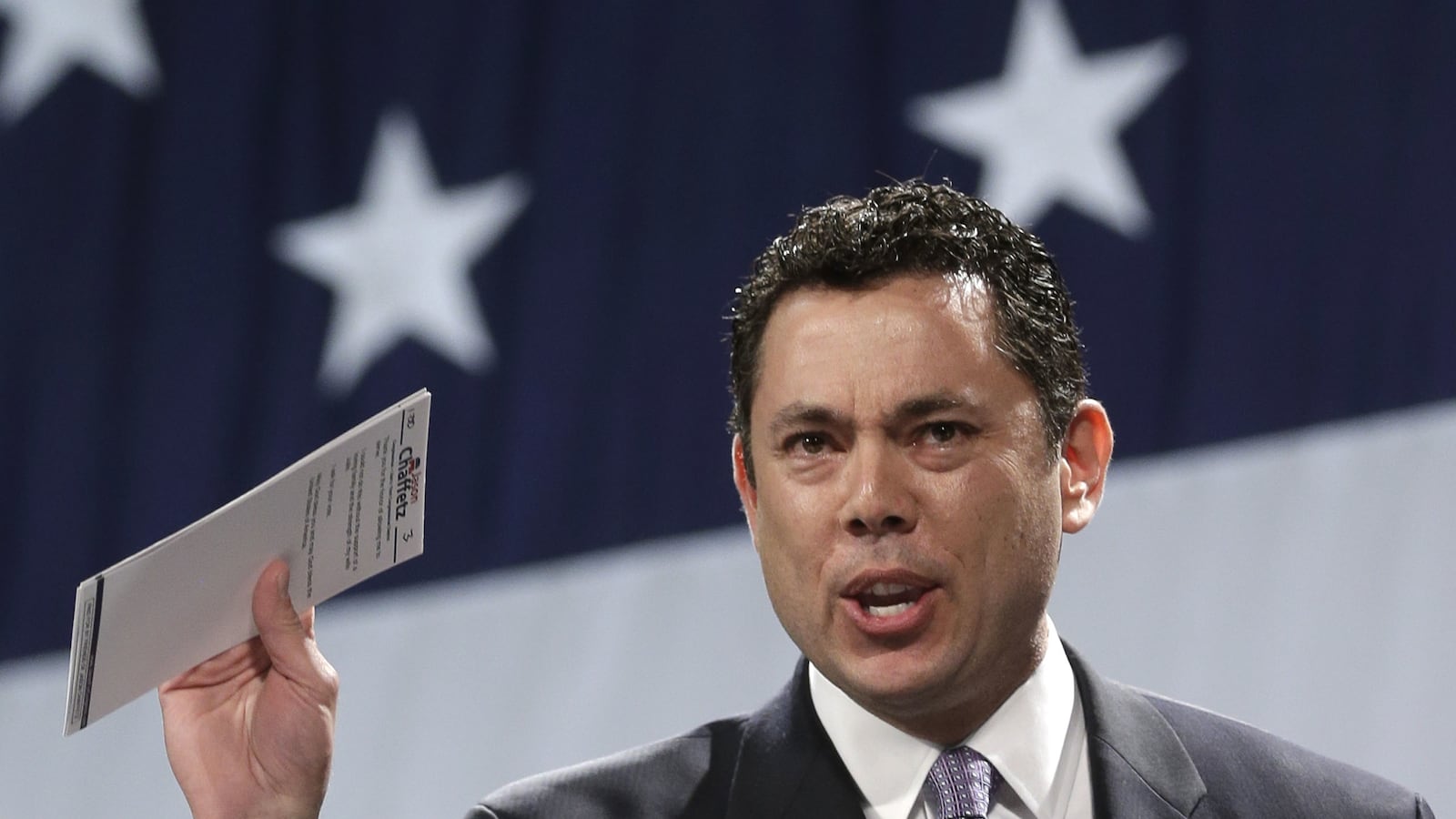Let’s redirect our attention back to Benghazi. When is that special Benghazi committee in the House of Representatives going to get cracking, you may have wondered? Good question. It hasn’t been announced yet. But here’s a better question. What, now, is it going to investigate?
While we’ve all been focused during the past week on the border, there was a pretty major news development on Benghazi that got buried and is in need of a little sunshine. Last week, the Associated Press reported on transcripts of hours of closed-door interviews with nine U.S. military leaders that had been conducted by two House committees, Armed Services and Oversight (the latter is Darrell Issa’s committee). Those military leaders agreed on a, or maybe the, central point as far as this continuing “investigation” is concerned: There was no stand-down order.
The stand-down conspiracy has been a central right-wing talking point virtually since the tragic storming of the consulate, which killed Ambassador Chris Stevens and three other Americans. The idea is that our heroic men and women in uniform could have saved the quartet, but President Obama and Hillary Clinton didn’t want them to, because they’re weak and they want America to fail.
Utah Rep. Jason Chaffetz has been among the most vocal and direct Republicans on this point, saying last year: “We had proximity, we had capability, we had four individuals in Libya armed, ready to go, dressed, about to get into the car to go in the airport to go help their fellow countrymen who were dying and being killed and under attack in Benghazi, and they were told to stand down. That’s as sickening and depressing and disgusting as anything I have seen. That is not the American way.”
Issa has made similar comments. South Carolina Rep. Trey Gowdy, who will chair the special committee once it does get off the ground, has never been quite so matter-of-fact as Chaffetz, but he too has performed the stand-down Fox trot, in a slightly more glancing way back in early May. “Well, Greta, your viewers would still have the same unanswered questions as we have: why our security profile was so low on the anniversary of 9/11; why we didn’t have any assets moving during the siege itself; and why the government can’t be trusted to answer your questions completely and accurately in the aftermath,” he said. “The jury that I’m interested in are reasonable-minded, fair-minded people, like your viewers.” The key phrase there is “why we didn’t have any assets moving,” which means “military people dispatched.”
The transcripts show that that question was answered—back in March—behind closed doors by the two military officials responsible. The senior military officer who issued the “remain in place” order to troops based in Tripoli, 600 miles away, and the detachment officer who received the order both told the House it was the right decision. A four-member team that included the detachment leader, a medic, and two others was told to remain in Tripoli because the determination was made, according to the AP’s reporting on the transcripts, that there was simply no way the team could have reached Benghazi in time to make any difference. The mayhem had already taken place.
If and when these ridiculous hearings happen, I’d wager that you’re going to be hearing Republicans wailing about when the “remain in place” phone call was made. On that question, there is some dispute. It might have happened as early as 5:05 a.m., or it might have happened as late as 6:30 a.m. So that’s a pretty large time window during a crisis for the GOP to exploit. But remember as you hear all this: It doesn’t matter. The second attack at Benghazi happened around 5:30 a.m. and lasted 11 minutes. It takes 90 minutes to fly from Tripoli to Benghazi. So it was completely physically impossible for the team to get there, unless its members had the power to spin the world backward and reverse time, like Christopher Reeve did to bring Margot Kidder back to life.
The officer who gave the order concluded that given that reality, the team would be better off in Tripoli, where the embassy was being evacuated in the aftermath of the Benghazi consulate attack. Some three dozen Americans were being taken from the Tripoli embassy to a classified location outside the city. And lo and behold, the medic who stayed behind in Tripoli saved one American life during the evacuation, according to the report. So according to these officials, the United States suffered one less death because the “remain in place order was issued.
Remember, this testimony is old. March. It was given behind closed doors, so we didn’t know about it. But Darrell Issa, and one has to assume John Boehner, did know. And still Boehner empaneled this committee. Yes, I suppose there are other questions the committee can pursue. But the public-interest question is whether anything more could have feasibly been done to prevent those four deaths in Benghazi, and nine military leaders have said no, it couldn’t have. The other questions are just the usual political ones—can they find some flimsy basis for impeachment, and can they hurt Hillary Clinton. Our troops didn’t stand down then, but someone sure should now.






